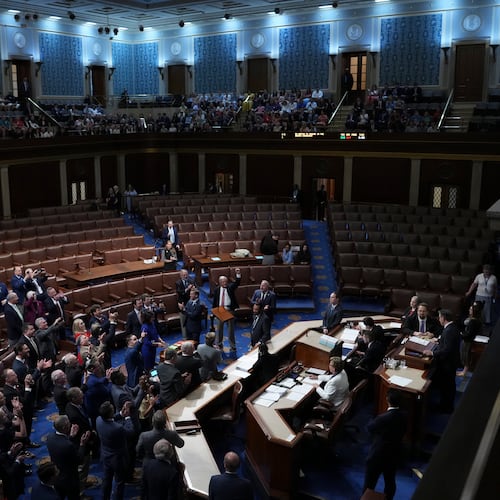When I moved to Atlanta nearly a decade ago, I learned the self-styled militant behind the fatal Centennial Olympic Park bombing some years earlier had also set off a bomb at an abortion clinic in my leafy suburb.
It was one of four such bombings. Two died and more than 100 were injured in the Olympic Park incident. News reports labeled it an “act of terror.”
I was sure it was an isolated instance of unbridled violence, perpetrated by a lone individual, which would never happen again. It was hardly more than a passing thought.
Fast-Forward a Decade
Now, fast-forward 10 years. What a drastically different and increasingly violent world we’re living in today. It is a time when a violent incident is no longer just a “passing thought.”
Atlanta is a diverse city with its own clashes, but we have been blessed with many signs of progress in the intervening years. Atlanta can take immense pride as a melting pot, a gateway to the globe.
Regrettably, the menace of violence posed by disaffected individuals has become widespread – such as the terrorist-inspired couple in San Bernardino, and the brothers behind the Boston Marathon bombings.
The bloody attacks in Brussels, Paris, and elsewhere were even larger in scope and involved coordinated teams of killers and suicide bombers.
An increasingly international city
These kinds of incidents can happen again, almost anywhere – and today Atlanta is increasingly an international city.
Consider our experience little more than a week after Paris, when word came that the Philips Arena was on an ISIS “hit list” last November. Fortunately, the date passed without incident.
Threat remains ‘very real’
The persistent threat, though, remains very real. As a nation, we cannot afford to allow the intra- and inter-party vitriol of the unprecedented campaigns for the presidency to continue to distract us.
And, we cannot assume the horrific growth of terrorism in the Mideast and Europe will not spread here. In fact, who knows whether terrorism might take root in Asia, South America and elsewhere in the future?
Senior U.S. intelligence officials warned recently that our country was facing the highest terrorist threat level since 9/11, much of that the result of 40,000 fighters from over 120 countries having flowed into Syria and Iraq. Many will return home to commit acts of terror.
How does Atlanta, how does any city (and how do we, as a nation), protect against such peril? Will it grow to invade our backyards, our communities, our schools? The answer is complex, but I believe it’s critical to understand the “roots of terrorism” to stop or slow its growth.
Looking at terrorism and violent conflict as a living organism: How is terrorism spawned? What makes it multiply? Are some social determinants more influential in leading individuals to terrorism?
Institute devoted to conflict resolution
Finding the right answers is attainable. The tools, technology and gifted minds to identify a path toward stemming the growth of such violence are certainly accessible.
As a result, and consistent with my family’s values and deep commitment to a world more at peace, last fall our Family Foundation established the first research institute devoted solely to the study and resolution of global conflicts at the University of Chicago, a leading academic and research institution.
Time for presidential candidates to tackle terrorism
Where does all of this take us? Politicians talk daily about “defeating the Islamic State.” That’s understandably about the here-and-now. But we need to look ahead for the generations to come.
We urgently call on the political parties and, in particular, Donald Trump and Hillary Clinton, to prioritize the topic of terrorism.
Presidential candidates, reject complacency, assess the dangers we face as a nation – and propose substantive ideas aimed at a longer-term solution to stem the growth of international terrorism.
Clearly, this would demonstrate true leadership to the electorate. The nation needs a dialogue that explores how America’s foreign policy can benefit from a deeper and stronger understanding of the “roots of terrorism.”
Making an impact
Our vision for The Pearson Institute for the Study and Resolution of Global Conflicts is to make a real and lasting impact, influencing and informing policy in such a way that the eventual result is a world more at peace.
We ask those interested to join us. We’re confident that by serving as a catalyst and sharing insights that inform new public policies, the threat of terror will be lessened in the years ahead.
About the Author
Keep Reading
The Latest
Featured


